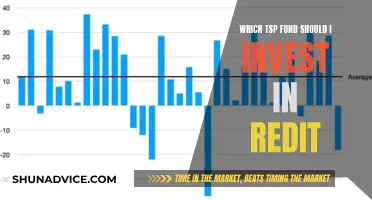
Fidelity Investments is a privately owned investment firm that offers a range of financial services, including investing, cash management and insurance. The company was founded in 1946 and has since grown to become one of the largest brokers in the US, serving nearly 50 million clients and employing over 74,000 associates. Fidelity's fees are generally considered to be low compared to other brokers, with no commissions on stock or ETF trades, no account fees and a selection of no-expense-ratio index funds. However, there are some fees associated with certain transactions, such as a $0.65 fee per options contract and a 1.5% gross advisory fee for wealth management services. Overall, Fidelity's fee structure is transparent and competitive, making it a popular choice for investors seeking low-cost investment options.
What You'll Learn

Fidelity's fees for managed accounts
Fidelity offers a range of managed accounts, each with its own fee structure. Here is a detailed overview of the fees associated with Fidelity's managed accounts:
Digital Managed Accounts
Fidelity offers digital managed accounts for investors seeking simple and professional money management solutions. These accounts have a gross advisory fee structure as follows:
- $0 for accounts with a balance under $25,000
- 0.35%/year for accounts with a balance of $25,000 and above
There is no minimum amount required to open a digital managed account. Once your balance reaches $25,000, you gain access to a team of dedicated Fidelity advisors.
Fidelity® Wealth Management
Fidelity® Wealth Management is a service that provides planning and advice from a dedicated advisor. This service is generally available to clients with at least $500,000 managed through Fidelity® Wealth Services. The gross advisory fee for this service ranges from 0.50% to 1.50% per year, depending on the specific account and balance.
Fidelity Private Wealth Management®
Fidelity Private Wealth Management® is a premium service that offers planning and advice from an advisor-led team. This service is generally available to clients with at least $2 million managed through Fidelity® Wealth Services or Fidelity® Strategic Disciplines and $10 million or more in total investable assets. The gross advisory fee for this service ranges from 0.20% to 1.04% per year, depending on the specific account and balance.
Fidelity® Personalized Planning & Advice
Fidelity® Personalized Planning & Advice is a digital investment management service that also provides access to financial advice through 1-on-1 calls with Fidelity advisors. This service has a gross advisory fee of 0.50% per year. The general eligibility requirement is to have at least $25,000 managed through Fidelity Personalized Planning & Advice.
Fidelity Managed FidFolios®
Fidelity Managed FidFolios® offers professionally managed stock portfolios with tax-smart strategies. There is no minimum required to open an account, but to invest according to the chosen investment strategy, a minimum balance of $5,000 is needed. The gross advisory fee for this service ranges from 0.20% to 1.50% per year, depending on the specific strategy and account balance.
Separately Managed Accounts (SMAs)
Separately Managed Accounts (SMAs) are professionally managed portfolios generally consisting of individual securities. These portfolios can be personalized to meet your needs and investment objectives. The gross advisory fee for SMAs ranges from 0.20% to 1.50% per year, depending on the specific strategy and account balance.
Retirement Funds: Risky Business for Long-Term Investors
You may want to see also

Fidelity's fees for buying and selling
Fidelity offers $0 trading commissions on online US stock, ETF, and option trades. However, options trades carry a $0.65 per-contract charge, which is relatively high compared to other brokers. There is also a small charge on sell orders, as they are subject to an activity assessment fee of $0.01-$0.03 per $1,000 of principal.
Fidelity offers free stock and ETF trading when you trade US stocks. International stock trade fees are relatively high, and there is a minimum markup or markdown of $19.95 if traded with a Fidelity representative. For US Treasury purchases traded with a Fidelity representative, a flat charge of $19.95 per trade applies. A $250 maximum applies to all trades, reduced to a $50 maximum for bonds maturing in one year or less.
Fidelity's margin rate is volume-tiered. There is a base margin rate, plus a premium or a discount depending on the borrowed amount. At the time of the review, the base rate was 12.075%, resulting in varying financing rates.
Fidelity offers a large selection of no-transaction-fee mutual funds, including its own Fidelity Zero index funds, which have no expense ratio and no minimum investment requirement. However, if you sell these funds within 60 days of purchase, a $49.95 fee is charged. For all other funds, a purchase costs either $49.95 or $75, depending on the fund.
Fidelity offers a substantial selection of bonds, including FDIC-insured CDs and bond funds. Clients can also buy over 100,000 individual bonds, including corporate, municipal, and government bonds. Bond fees vary by type. For example, Treasury bonds traded on the secondary market incur no fees, while other bonds have a $1 per bond mark-up/markdown with a $250 maximum.
Overall, Fidelity has low fees and a transparent fee structure. The company has eliminated nearly all account fees, and there are no inactivity or withdrawal fees for ACH and USD wire withdrawals.
Maharlika Investment Fund: Approved or Not?
You may want to see also

Fidelity's fees for trading stocks and ETFs
Fidelity offers $0 commissions on online US stock, ETF, and option trades. There is no minimum balance required to open a retail brokerage account. However, there is a $1 fee per bond or CD in secondary trading, though US Treasuries traded online are free.
- $0 per stock or options trade, plus $0.65 per contract on options
- $0 per trade for ETFs
- $0.01 to $0.03 activity assessment fee for sell orders
- $0.65 per contract Options Regulatory Fee for both buy and sell transactions
- $19.95 transaction fee for representative-assisted treasury auction orders
- $19.95 minimum mark-up or mark-down if traded with a Fidelity representative
- $19.95 flat charge for US Treasury purchases traded with a Fidelity representative
- $250 maximum fee for all trades, reduced to a $50 maximum for bonds maturing in one year or less
- Additional fees and minimums for non-dollar bond trades
Fidelity also offers a selection of no-expense-ratio index funds, which are free to investors. These include the Fidelity ZERO Total Market Index Fund, the Fidelity ZERO International Index Fund, the Fidelity ZERO Large Cap Index Fund, and the Fidelity ZERO Extended Market Index Fund.
Overall, Fidelity has low fees for trading stocks and ETFs, with no account fees or minimum balance requirements.
HDFC Balanced Advantage Fund: Safe Investment Option?
You may want to see also

Fidelity's fees for trading options
Fidelity offers $0 trading commissions for online US stock, ETF, and option trades. However, there is a $0.65 fee per contract on options. This means that if you buy a call option at $100 and sell it at $110, the total fees will be $1.30. There is also a maximum charge of 5% of the principal when placing option trades.
Fidelity's fees for options trading are considered high compared to other brokers, some of which have completely eliminated options contract fees. However, Fidelity does offer to waive or reduce these fees for certain customers, depending on their specific circumstances, such as the size and number of trades they make, the total value of their assets, and the length of their relationship with Fidelity.
In addition to the per-contract fee, there is an Options Regulatory Fee that applies to all option buys and sells. This fee is subject to change and is currently between $0.02 and $0.04 for each contract opened.
Fidelity also charges an activity assessment fee on sell orders, which is typically between $0.01 and $0.03 per $1,000 of principal. There may also be additional exclusions and conditions that apply to certain types of accounts or transactions.
Target-Risk Funds: A Guide to Investing in Your Future
You may want to see also

Fidelity's fees for trading bonds
- There is a \$1 per bond mark-up for online trades.
- There is a minimum mark-up or mark-down of \$19.95 if traded with a Fidelity representative.
- For US Treasury purchases traded with a Fidelity representative, a flat charge of \$19.95 per trade applies.
- A \$250 maximum applies to all trades, reduced to a \$50 maximum for bonds maturing in one year or less.
- Rates are for US dollar-denominated bonds; additional fees and minimums apply for non-dollar bond trades.
- Mark-ups and mark-downs may affect the total cost of the transaction and the total, or "effective", yield of your investment.
- The offering broker may separately mark up or mark down the price of the security and may realise a trading profit or loss on the transaction.
- There is a potential to save an average of \$15 per bond by choosing Fidelity.
- There is no fee for trading US Treasuries online.
Fidelity Investments: Annuities and Their Role
You may want to see also
Frequently asked questions
Fidelity has eliminated most account fees, including transfer and account closure fees. There is a $0 minimum to open a retail brokerage account, and trading fees are $0 for US-listed stocks and ETFs. There is a 65-cent fee per contract for options.
There is a $0.01 to $0.03 activity assessment fee per $1,000 of principal on sell orders. Non-USD wire withdrawals cost 3% of the amount withdrawn. There is also a currency conversion fee for trading international stocks.
There are thousands of commission-free mutual funds available. However, if you sell a fund within 60 days of purchasing it, a $49.95 fee is charged. For all other funds, a purchase costs either $49.95 or $75.
Fidelity offers several managed account options with financial advisors and dedicated investment strategies. Fees range from 0.2% to 1.5% per year, depending on the type of account and the amount invested.
Fidelity charges flat per-trade commissions for most international markets. These vary depending on the region, with fees for European countries generally lower than those for Asia, the Pacific, and Africa.







